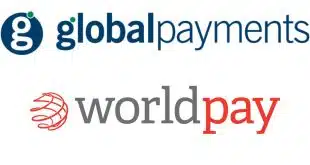The national legal battle over an Illinois interchange law continues to broaden in scope.
Several national organizations representing merchants are expected to file amicus briefs with the United States District Court for the Northern District of Illinois Friday in support of the Illinois Interchange Fee Prohibition Act. The briefs are being filed in advance of an Oct. 30 preliminary hearing to determine whether the plaintiff’s request for an injunction against the law will be granted by the court. Friday is the deadline for filing any briefs.
The retailer groups expected to be filing briefs include the National Association of Convenience Stores, the National Retail Federation, and FMI, the food industry association. In addition, the Illinois Retail Merchants Association, which helped spearhead passage of the law, and the Illinois Fuel and Retail Association are also expected to be filing briefs.

Others rumored to be filing briefs include the National Restaurant Association and Sen. Richard Durbin of Illinois, who is a co-sponsor of the Credit Card Competition Act.
Most, if not all, of the organizations filing briefs will reportedly be asking the court to intervene in the case. Intervention is a legal procedure that allows a third party to join an existing lawsuit.
An amicus brief, or friend-of-the-court brief, is a legal document filed by an individual or organization that is not a party to a case but has an interest in the outcome. The brief is intended to provide the court with outside information, expertise, or arguments that can help the court make a decision in the case.
The scope of the parties supporting the lawsuit challenging the Illinois Law—which is scheduled to go into effect July 1, 2025—has expanded since the lawsuit was filed in August. On Wednesday, the office of the Comptroller of the Currency, which regulates financial institutions, filed an amicus brief opposing the law and supporting the plaintiff’s request for an injunction.
The Electronic Payments Coalition and the Electronic Transactions Association each filed briefs in support of the lawsuit and the injunction in September.
In an email exchange with Digital Transactions News, the OCC said it filed the brief out of its commitment to “vigorously [defend] core pre-emption” of federal banking laws, such as the National Bank Act, that grant financial institutions the power to charge fees for processing credit and debit card transactions.
The lawsuit challenging the Illinois law was filed in August by the Illinois Bankers Association, The American Bankers Association, the Illinois Credit Union League, and America’s Credit Unions, formerly the National Association of Federally-Insured Credit Unions.
With more organizations taking sides in the case, the lawsuit is taking on implications that go well beyond the borders of Illinois for the banking industry and merchants.
“In a way, this is becoming a national issue,” says Doug Kantor general counsel for the National Association of Convenience Stores, who confirms NACS will be filing an amicus brief and requesting to intervene in the case. “Our concern is that banks can’t farm out credit and debit card pricing to non-banks, such as Visa and Mastercard, and expect to be protected under the National Bank Act” when state laws are passed that impact pricing.
On Thursday, the Illinois Attorney General’s Office filed a brief with the court contesting the OCC’s filing, arguing that it should not be accepted by the court as the attorney general’s office does not have enough time to respond prior to the filing deadline.
When asked Friday whether it will support the briefs expected to be filed in support of the law, the Illinois Attorney General’s office said by email that it does not comment on pending litigation.





